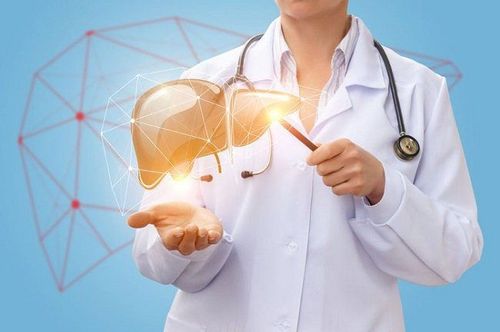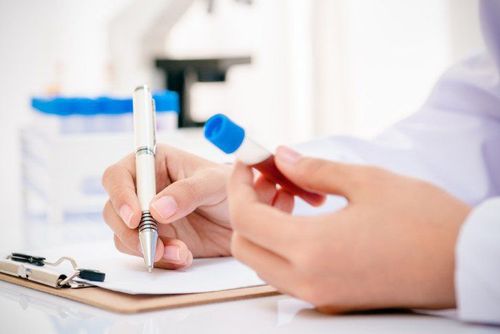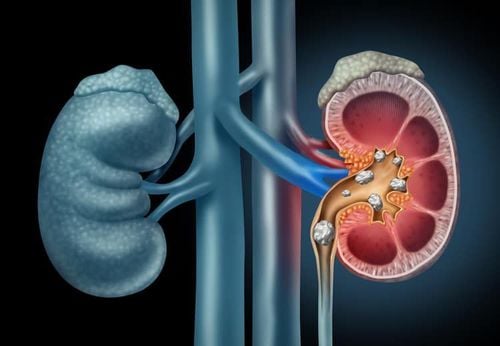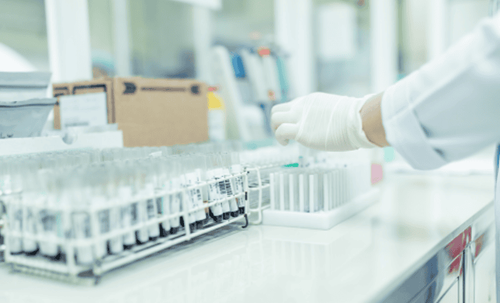This article is professionally consulted with Do Thi Hoang Ha, MSc, MD - Biochemistry Testing Doctor - Laboratory Testing Department - Vinmec International General Hospital, Hai Phong.
Protein is an essential component that plays a role in many functional activities of the body. Total protein in the blood consists of three main components: albumin, globulin, and a small amount of fibrinogen. Both albumin and alpha globulin as well as beta globulin are primarily synthesized in the liver, which is why the Albumin/Globulin ratio in blood tests is used to assess liver function. Certain diseases can affect the concentration of Albumin or Globulin in the blood; therefore, the ratio of these two indicators reflects the condition and function of the liver.
1. What is the Albumin/Globulin ratio?
Plasma proteins are primarily synthesized in the liver, plasma cells, lymph nodes, spleen, and bone marrow. During diseases, the total protein concentration and the percentage ratio of different organs in the body can change significantly from normal values.
Blood proteins consist of two main components: albumin and globulin, along with a small amount of fibrinogen. The liver is the only organ that synthesizes albumin and fibrinogen, while globulin is produced by immune cells (bone marrow, spleen, lymphocytes, etc.). Proteins are composed of more than 20 types of amino acids, which are essential for the construction and play a significant role in forming cells and tissues, aiding the body's growth and development, regulating body functions as hormones and enzymes, as well as participating in maintaining pH balance in the blood. Total protein tests are conducted by measuring the amount of albumin and globulin in the serum of the blood. The Albumin/Globulin ratio in total protein tests is the ratio of the concentrations of the two proteins Albumin and Globulin, obtained by directly measuring the concentrations of albumin and total protein in the blood.
Changes in the relative ratio of plasma proteins can occur due to changes in the ratio of one part of the protein in the plasma. Typically, in such cases, the total protein amount does not change. The A/G ratio is commonly used as a distribution index of albumin and globulin. This ratio changes significantly in diseases such as cirrhosis, glomerulonephritis, nephrotic syndrome, acute hepatitis, lupus erythematosus, and certain acute and chronic inflammatory diseases.
Albumin protein is a carbohydrate-free protein with a small molecular weight, comprising many amino acids, and constitutes about 55-65% of the total protein found in the blood. Albumin is primarily synthesized in the liver and ensures vital functions of the body, such as:
- Maintaining colloidal osmotic pressure in the plasma, stabilizing electrolyte and water exchange.
- Binding and helping to dissolve various substances, such as bilirubin, calcium, and long-chain fatty acids. These substances are attached to albumin and circulate in the blood.
- Playing a role in the transport and storage of various ion molecules and serving as a source of endogenous amino acids.
- Additionally, albumin has the ability to bind with heavy metals, toxins, and various pharmaceuticals, which explains why low albumin levels in the blood significantly affect the pharmacokinetics of drugs.
There are three main types of globulin in the body: alpha globulin, beta globulin, and gamma globulin. Globulin proteins consist of different molecules in terms of weight, size, and function. Among them, alpha and beta globulins are synthesized in the liver. Gamma Globulin, also known as immunoglobulin, consists of glycoprotein antibodies that help the immune system recognize and combat foreign agents. When the body is exposed to antigens, this substance is produced by B lymphocytes and plasma cells in response to antigen stimulation through cellular or humoral immune responses. The functions of globulin proteins include:
- Participating in maintaining acid-base balance.
- Participating in the body's inflammatory response reactions.
- Producing antibodies to help the immune system recognize and neutralize foreign agents, protecting the body through processes that involve binding with antigens, activating the complement system, and mobilizing immune cells.
- Taking part in fibrin digestion and regulating blood coagulation.

2. The significance of the Albumin/Globulin ratio in testing
The Albumin/Globulin ratio in total protein testing helps assess the overall health status of the patient, and this index can suggest diseases related to the liver and kidneys, particularly aiding clinicians in evaluating liver function. The Albumin/Globulin ratio in patients typically ranges from 1 to 1.5, with the concentration of Albumin in the blood being higher than that of Globulin. However, the concentrations of Albumin, Globulin, and the A/G ratio in the blood can change depending on the specific diseases that the patient has. Based on the Albumin/Globulin ratio, doctors can identify the cause of the disease. Several factors can influence test results, including:
- During the blood draw, if the tourniquet is left on for too long, it can increase Albumin levels.
- A diet high in protein.
- Patients using certain medications that lower protein, such as estrogen or contraceptives.
When test results show an increased or decreased Albumin/Globulin ratio, it may suggest certain diseases. Specifically:
- A decreased Albumin/Globulin ratio reflects increased Globulin production and decreased Albumin production, often seen in the following conditions.
- Liver diseases such as cirrhosis, hepatitis (decreased Albumin production),...
- Multiple myeloma.
- Autoimmune diseases.
- Peptic ulcer disease.
- Kidney diseases: nephrotic syndrome (loss of large molecular proteins, mainly Albumin, in urine).
An increased Albumin/Globulin ratio reflects insufficient production of immunoglobulin Globulin, such as in certain genetic deficiencies and some leukemia, often seen in the following conditions:

3. When should the Albumin/Globulin ratio be tested?
Total protein testing is performed during routine health check-ups. This test is also carried out to reflect the nutritional status of the body or to diagnose diseases related to the kidneys, liver, and gastrointestinal diseases,... Additionally, when the body exhibits abnormal symptoms, patients should seek medical check-ups promptly. Some abnormal symptoms include:
- Loss of appetite.
- Sudden weight loss.
- Fatigue.
- Nausea and vomiting.
- Difficulties in digestion.
- Signs of malnutrition.
- Swelling of arms, legs, face,...
Furthermore, before undergoing the test, patients should note to fast for about 8-12 hours prior and avoid consuming alcoholic beverages. Early in the morning is when blood components are most stable and will accurately reflect the patient's health status. Patients should also inform doctors about any medications they are using to enable accurate assessments of the test results.
In summary, the Albumin/Globulin ratio in testing helps assess the general health status of patients, indicating possible diseases related to the liver or kidneys. Patients can undergo tests during routine examinations or when they notice abnormal signs such as fatigue, loss of appetite, or sudden weight loss, prompting them to seek medical care for diagnosis and evaluation of their health status.

Currently, to help patients early detect risks and screen for diseases, Vinmec International General Hospital has included total protein and Albumin tests in its routine health check-up packages to determine the Albumin/Globulin ratio, assessing overall health and specifically liver and kidney health. Thus, routine check-ups and performing auxiliary tests can sometimes help detect abnormalities that patients themselves may not notice. This proactive approach allows for early diagnosis, facilitating early treatment and ensuring a better quality of life moving forward.
To arrange an appointment, please call HOTLINE or make your reservation directly HERE. You may also download the MyVinmec app to schedule appointments faster and manage your reservations more conveniently.








